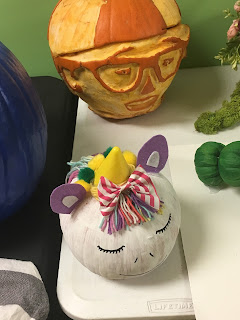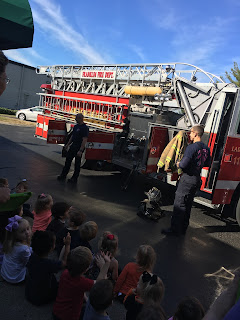Best of Parenting

Oct 31, 2017
Trick or Treating Parade
This morning, the students of AoCS had our annual trick-or-treating parade around the school. They stopped at each classroom to grab a piece of candy. We saw princesses, dinosaurs, unicorns, and many more adorable costumes! Even our little ones in Infant One dressed up! There was a chili pepper, a pumpkin, a turtle, and a little unicorn.
Oct 26, 2017
Pumpkin Contest
This week we had our annual pumpkin decorating contest! Each classroom decorated a pumpkin with various themes, and then our parents also did some amazing pumpkins! We are excited to see who wins from each category. Check out all of these pumpkins!!
Oct 20, 2017
Fire Truck Visit
This morning we had a visit from the Franklin Fire Department. They showed us how they prepare to go to a fire by putting on all of their gear, how to stop, drop, and roll, and we even got to see how high the ladder went into the sky. All of the students were super excited to hear the sirens and see the lights and everyone got their very own fire hat to wear!
Oct 12, 2017
Fire Safety Week
See our pictures below of us practicing our fire safety with a fire drill!
Here are some helpful fire safety tips!
Oct 4, 2017
The Power of Playdough
Playdough Power
Squishing, rolling, sculpting, molding . . . young children love to play with playdough. Add some props from around the home and playdough play becomes a powerful way to support your child’s learning. This simple preschool staple lets children use their imaginations and strengthen the small muscles in their fingers—the same muscles they will one day use to hold a pencil and write. Using playdough with you, a friend, or siblings supports your child’s social skills such as sharing, taking turns, and enjoying being with other people. Playdough also encourages children’s language and literacy, science, and math skills—all at the same time!
What children learn
Playdough play at home or school supports development and learning in many areas. When children use playdough, they explore ideas and try different approaches until they find one that works. They compare and contrast objects ("Mine’s a fat pancake and yours is skinny”), actions ("No, don’t cut it! Scrape it, like this”), and experiences ("We’re not making a snake—we’re making a road”). In their experimenting, children come up with their own ideas, satisfy their curiosity, and analyze and solve problems. These are all skills that help children learn and succeed in school.
Social and emotional development
Creating with playdough lets children feel competent ("I’m good at rolling the dough”) and proud of their accomplishments ("Hey, I made a dog”). Pounding, flattening, and squeezing are healthy and safe outlets for extra energy. They can also help children cope with strong feelings. When children seem stressed or angry, get out the playdough and props!
During playdough time at school, children talk about what they’re making and how. Re-create this atmosphere at home by inviting siblings or playmates and including yourself in the play. Make comments about their work ("You cut it again”). Ask questions so children can describe and think about what they are doing ("What does this do?”). Connect their play to the real world ("Can you make a red tomato? A green one might not be ripe”). Teach cooperation ("I can help you make your car”), and observe and compare actions ("I’m rolling my dough too”). Interactions like these contribute to development and learning, helping to prepare children for success in school and in life.
During playdough time at school, children talk about what they’re making and how. Re-create this atmosphere at home by inviting siblings or playmates and including yourself in the play. Make comments about their work ("You cut it again”). Ask questions so children can describe and think about what they are doing ("What does this do?”). Connect their play to the real world ("Can you make a red tomato? A green one might not be ripe”). Teach cooperation ("I can help you make your car”), and observe and compare actions ("I’m rolling my dough too”). Interactions like these contribute to development and learning, helping to prepare children for success in school and in life.
Subscribe to:
Comments (Atom)



















































